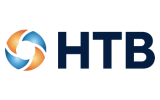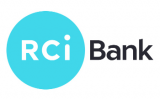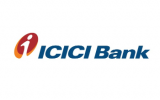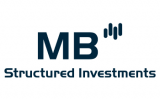Fixed Rate Bonds
Compare latest fixed rate savings bonds from 1 to 5 years with FSCS protection in 2025
Savings Offer – 1 Year Fixed Rate
1 Year Fixed Rate
Earn 4.50% AER Fixed Interest
- Provider – Investec Bank
- Minimum deposit – £5,000
- Interest paid at maturity
- Fixed rate for 1 year
Compare Fixed Rate Bonds
1 Year Fixed Rate Bonds
Investec Bank offer 4.50% AER for a minimum deposit of £5,000 or more, whilst Aldermore Bank offer a rate of 4.36% AER for deposits from £1,000.
2 Year Fixed Rate Bonds
RCI Bank pay 4.40% for a minimum deposit of £1,000, whilst Investec Bank offer a rate of 4.36% AER for deposits from £5,000.
3 Year Fixed Rate Bonds
RCI Bank pay offer 4.45% AER for a minimum deposit of £1,000 or more, whilst Investec Bank pay 4.35% AER for deposits from £5,000.
4 Year Fixed Rate Bonds
Not many Banks provide a 4 year fixed rate. However Aldermore Bank do, offering 4.10% AER fixed rate with a minimum deposit of £1,000.
5 Year Fixed Rate Bonds
Aldermore Bank pay 4.10% for a minimum deposit of £1,000 whilst Hampshire Trust Bank offer a rate of 4.05% AER for deposits from £1.
If you are happy to lock your money away for 5 years or more you may wish to consider alternative options for your cash where your capital is guaranteed but where the return on your money is linked to the performance of the stock market. Structured deposit plans are not for everybody but offer an option to savers who are looking for higher returns.
What are fixed rate bonds?
With interest rates increasing due to base rate increases from the Bank of England, it can pay to shop around for the best fixed saving deal. For savers who are prepared to tie up capital for a year or more, typically higher rates of interest are available from savings providers.
A fixed rate bond is a way of gaining a fixed rate of higher interest on your savings for a fixed period of time, typically between one and five years. Generally speaking the longer your savings can be locked away, the higher the interest rate you can get on your money. Some providers offer fixed rate bonds within a Cash ISA, so you benefit from tax-free interest returns.
Providers normally have a minimum subscription age of 18, but some providers offer options to younger savers.
How Do Fixed Rate Bonds Work?
Having a fixed term means that bonds have a maturity date at which time you will be contacted by your savings provider and provided with options on how you wish your money to be returned to you – you may be given options of putting the money into a new account in which case you should always shop around before accepting a savings deal offered by an existing provider as the rate of interest may or may not be competitive.
Product providers do not normally allow you to access your money during the term and if they do there are normally conditions which may involve a loss of interest so ensure you read the small print before you sign up. Some fixed interest providers will allow one withdrawal a year without penalties.
Interest paid on your savings is treated as income and you may have to pay tax on it depending on your circumstances. If you don’t pay tax you can receive interest gross if you complete HMRC tax form R85. Some accounts will pay interest gross and it is up to you to declare any tax owed to the Inland Revenue.
Fixed rate bonds are cash deposit based and you will get back your original deposit plus any interest owed unless the bank or building society gets into serious financial difficulty. In the unlikely event that this happens the Financial Services Compensation Scheme would pay compensation of up to £85,000 per account holder per authorised institution.
What to consider when choosing a fixed rate bond
Minimum deposits can vary from £1 to £10,000. Make sure that you are happy to part with that amount of money for a longer period of time! It is worthwhile having a five-year plan of projected expenses – such as mortgages, car purchases, or planning for a family or retirement – to ensure that you will not need access to your fixed rate bonds account.
Withdrawals are either not permitted or restrictions will apply. Read the provider terms and conditions so that you know what you are getting into. Some providers for example will allow one withdrawal during the term without penalties.
The payment of interest can also vary- some offer monthly interest, others quarterly or annually, and some only pay at the end of the agreed term. Choose a product that fits in with your requirements for the best rates of high interest.
Tax is payable on interest accrued unless you are a non tax payer in which case you can receive interest gross if you complete HMRC tax form R85. Alternatively it is often possible to take a Cash ISA fixed rate bond (current cash ISA allowance for 2018/19 is £20,000 per individual) from which interest can be taken tax free.
If you have cash ISAs from previous tax years you may be able to transfer to a new Cash ISA provider offering a fixed rate bond cash ISA deal.
Please note that this information is based on current law and practice which may change at any time.
Top 10 tips for your 2023 fixed rate bond selection
2. Check the market – shop around to find the right savings plan for you. Interest rates change all the time, and deals come and go on a regular basis.
3. Make sure you find a product that works for you – The choice of bond is dependent on the amount of money you intend to deposit, the fixed rate, and the length of the fixed rate period. Whether you want the account to be operated on an online account basis, postal basis or telephone basis. These should all be taken into consideration before making your choice. Read the savings provider terms and conditions carefully.
4. Read the fine print – determine when the provider is likely to let you access your money, how much notice is required, and if there are any penalties for requesting access before the bond matures.
5. Some deals require you to have the interest paid into a current account – check the small print.
6. Check the small print on how interest is paid – If monthly or annually, this will need to be declared if you submit a tax return. If interest is paid on maturity, this may be useful for tax planning purposes.
7. Many deals require you to have internet access – Some are offered on a postal or branch basis – check the small print.
8. Check that your money is covered by the Financial Services Compensation Scheme – they will guarantee £85,000 of savings against institutional failure. Most UK banks should have this cover, but Irish banks that do not have a UK arm may not be covered by the FSCS.
9. Check what happens when your savings product matures – Providers will write to you when your account matures; if you do not respond, the provider will often put your savings into a low or no-interest holding account until you provide instructions on what you want to do with the money. It is therefore important to diarise the maturity of your bond and have in mind what you want to do with the money.
10. What is the tax treatment if you are a non-taxpayer – If you are not a taxpayer, many providers will pay interest gross on submission of the relevant HMRC tax form.












